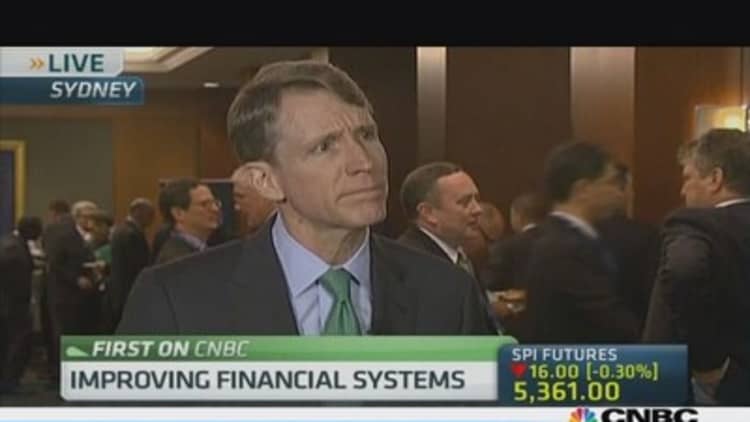
The frail state of emerging markets is expected to be high on the agenda when the world's 20 major economies meet in Australia this weekend.
Major developing countries such as Argentina, Brazil, Turkey and India have been hit by brutal selling -- first in May and June last year and again at the start of the year – amid jitters about the impact of an unwinding of the U.S. Federal Reserve's monetary stimulus program.
(Read more: Market looking worn as traders ignore data)
And in particular, the U.S. is expected to come under pressure to be more mindful of emerging markets as it unwinds an ultra-easy monetary policy put in place in the wake of the global financial crisis.
"A key question to be addressed is how episodes of financial market volatility are affecting emerging market economies," Australian Treasurer Joe Hockey said in a speech to the Institute of International Finance (IIF) in Sydney, adding that he expected a number of countries to make their concerns clear to the U.S. at this weekend's G-20 meeting.
"There is no doubt that the Fed needs to be aware of the international implications of its actions and be mindful of them, but ultimately the Federal Reserve has to operate in a manner that is consistent with its domestic mandate. Within that mandate it will clearly take into account international feedback effects on the U.S. economy," he said.
The Fed scaled back its $85 billion-a-month stimulus program by $10 billion in December and by a further $10 billion in January.
An exit of cash from emerging markets on Fed tapering has hit emerging-market currencies, for instance the hit a five-year low and the Turkish lira hit a record low in January. Stock markets have also been pummeled, with Brazil's benchmark stock index down almost 10 percent since the start of the year.
Added to that is growing political risk, with India, Turkey, Brazil, South Africa and Indonesia, collectively known as the "Fragile Five," all facing elections this year.
Political unrest and violence this week in Egypt, Libya, Ukraine and Venezuela have only added to the concerns about fragile emerging markets.
(Read more: Six boiling cauldrons around the world)
"Emerging markets remain at the top of the news whether it's South Africa or Brazil or India. So that will be a real topic of discussion here [in Sydney]," Tim Adams, president and CEO at the IIF, told CNBC.
The International Monetary Fund said on Wednesday that advanced economies must avoid scaling back stimulus too quickly given a weak global economic recovery, with recent market volatility highlighting key risks in some emerging markets.
(Read more: IMF sees risk in cutting back stimulus too quickly)
"I've talked to Janet Yellen at the Fed and Mark Carney at the Bank of England, and they are very sensitive to the spillover effects of their policy direction," said Adams, a former U.S. under secretary of Treasury for international affairs.
"I think there's a great dialogue between central bank heads, we're certainly going to see that here over the next couple of days," he added. "And some of this [market volatility] is the natural extension of a massive shift away from extraordinary supportive monetary policy to a very different regime."
That view was shared by Thierry Apoteker, the CEO, founder and chief economist at T-A-C Financial.
"It's clear from the Fed's perspective that they know their decisions have an influence but they also realize that If there is a progressive monetary normalization, it's also because the U.S. economy is expanding and the overall impact on world economy should be positive," he told CNBC Asia's "Squawk Box."
— By CNBC's Dhara Ranasinghe. Follow her on Twitter at @DharaCNBC.


